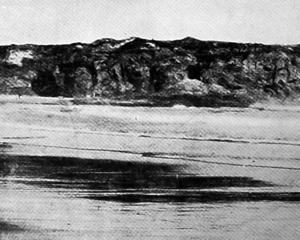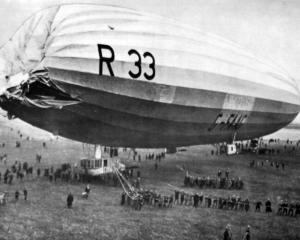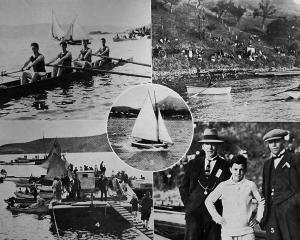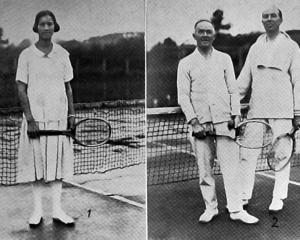
There was a very large and appreciative crowd present, and the band is to be complimented upon the success attending its performance of an excellent programme. Included among the items rendered were the overture "Morning, Noon, and Night", a selection from "Il Trovatore", and a reverie "La Reve du Moin", the "Gloria" from Mozart’s 12th mass, and the hymn tune, "Days and Moments", the programme concluding with the regimental march of the 4th Regiment and the National Anthem. It may be mentioned that the band has a splendid record for enlistments — no fewer than 35 of its members being on active service, and another five, who have just reached the prescribed age, have enlisted recently — a record of which any band might well be proud.
• Six o’clock closing of hotels has now been in operation (says the Melbourne Argus of January 2) for a little more than two months, and an examination of the figures in connection with cases of drunkenness dealt with by the City Court bench reveals much that is interesting. During the two months previous to October 26, when six o’clock closing became operative, 1242 cases of drunkenness had been dealt with at the City Court. For the two months since October 26 a total of 811 cases were dealt with, showing a decrease of 431, and representing an average of nearly eight fewer cases per day. During the Christmas weekend 27 ‘‘drunks’’ were locked up at the city watchhouse. This is a much smaller number than during the Christmas of 1915, but at the same time cannot be regarded as a sweeping effect of the reform, as the weather this year was much cooler, and in addition, it is asserted by competent authorities that as many men were to be seen in a state of inebriety in the streets on December 25 1916, as on any previous Christmas Day.
• According to a member of one of the largest women’s clubs in London, we shall shortly see women smoking pipes in public, for many ladies, it is said, already smoke small pipes in the seclusion of their own homes. Towards the close of the sixteenth century a large number of English women indulged freely in pipe-smoking. During the seventeenth century the fashion abated somewhat, probably owing to the introduction of snuff. I asked a leading tobacconist whether he could confirm the allegation. He replied that there is a growing demand among women for mild cigars. This, in his opinion, was a sure step towards pipe-smoking.
• Realising that the shortage of male help is likely to be accentuated during the coming months, the Postal Department at Auckland (says the Herald) has prepared to meet the situation by largely increasing its staff of women assistants. Since Christmas a dozen new girls have been taken on for training in various branches of work, so that when need arises they will be able to fill vacancies. There are now close upon 40 girls employed at the Post Office — three times as many as at the commencement of the war.
• The position of single men in regard to the war was stated thus at the Military Service Board at Wellington:— "Every single man of military age will be called up for military service, and before he can expect exemption he will have to prove his case. Vague statements cannot be accepted." — ODT, 15.1.1917.
• COPIES OF PICTURE AVAILABLE FROM ODT FRONT OFFICE, LOWER STUART ST, OR WWW.OTAGOIMAGES.CO.NZ












